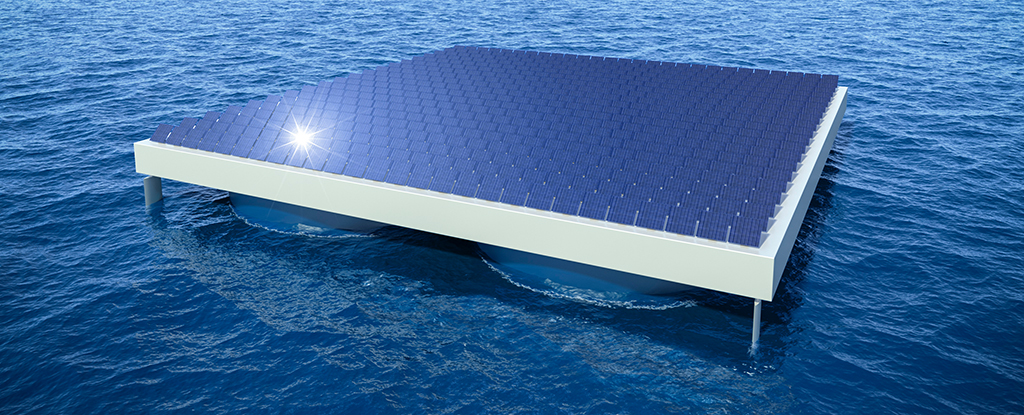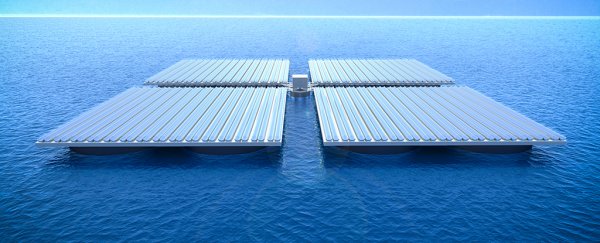More than 70 percent of our planet's surface is covered by water, so scientists are figuring out ways to make use of these vast spaces for generating renewable energy. We've already seen solar panels floating on top of lakes and reservoirs, and now researchers in Austria have developed a prototype barge loaded with solar cells that's capable of handling the dangerously choppy waves of the ocean.
The 100-metre (328-foot) platforms are based on a new floatation system called Heliofloat that enables the solar panels to roll with the swells of the sea and carry on producing electricity. The technology could potentially enable companies to create huge offshore solar plants to help supply our increasing energy needs.
Of course, the ocean is a very tumultuous place for veteran sailors and brand new solar panels alike, and if you've invested in stacks of expensive photovoltaic cells, you don't want them sinking down to the seabed.
But a team from the Vienna University of Technology think they've solved that problem by replacing conventional floats with flexible, open-bottomed cylinders.
These cylinders dampen rather than absorb energy, Gizmag's David Szondy reports, and the team behind the invention says Heliofloat can support platforms up to "the size of football fields" that can cope with heavy seas.
They work in a similar way to ballast tanks on ships and submarines that take on and let go water.
 TU Wien
TU Wien
"The key to this, is that Heliofloat is supported by open floatation devices," said lead researcher, Markus Haider. "Were a platform to be simply mounted onto air-filled, closed containers, the design of the construction would have to be inefficiently heavy and robust in order to be able to withstand heavy waves."
The Heliofloat buoyancy units are made from a soft, flexible material with trapped air in the upper section of these barrels.
Because the air has direct contact with the water below, it creates an air column that acts as a shock absorber. The waves are allowed to rise and fall while the solar panel platform itself remains relatively stable.
According to the developers, the same technology could have other applications besides solar power, such as systems for water desalination and evaporation prevention.
"In hot countries, Heliofloat platforms could be utilised to protect lakes against drying up," says Haider. One day, even residential housing could be built on a Heliofloat.
A prototype version is set for a demonstration at the Hannover Messe trade fair in Germany this week, and Haider and his team are seeking outside investment and commercial partners to help make the Heliofloat platforms a viable product.
